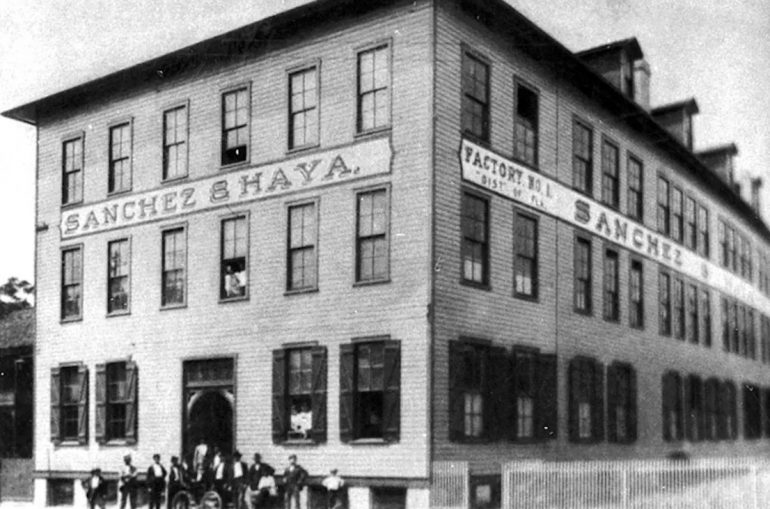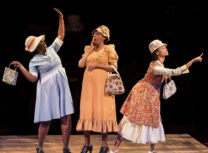The Role of Lectors in Cuban Cigar Factories

By A Noise Within
March 23, 2022
Until the 1920s, Cuban cigars both in Cuban and American cigar factories were hand-rolled. As workers rolled and stuffed cigars, it was common for a lector to read newspaper articles and novels aloud on the factory floor. The factory workers hired lectors—rather than factory owners—to entertain and inform them as they performed the monotonous task of hand-rolling hundreds of cigars each day. The material that the lectors read was chosen democratically—the workers would vote for what stories they wanted to hear. In addition to entertaining the factory workers, lectors would offer daily lessons in history, politics, and current events. Reading aloud in cigar factories occurred for the first time in 1865 at a factory in Havana. Historian Araceli Tinajero describes early lectors in his work, El Lector: The History of the Cigar Factory Reader:
“The first lectores were cigar workers who took turns reading aloud every half hour, and their coworkers compensated them for the time lost from their jobs.”
Reading aloud was a huge success, and the role of lector began to appear in factories all across Havana. When Cuban cigar workers began to immigrate to Key West and Tampa in the late 1800s, they brought the tradition of the lector with them.
Even as technology progressed and radios became widely available in the 1920s, cigar factory workers overwhelmingly opted to continue to listen to lectors rather than listen to the radio.
As educators and entertainers, lectors also became crucial to the spread of information that led workers in Cuba and the United States to seek out labor reform. Through their texts and lessons, lectors introduced workers across factories to radical political ideas and the prospect of a worker rebellion. Their readings encouraged labor radicalism and unionization. Historian George Pozetta describes this facet of the lectors’ role in cigar factories:
“The readers in the role of the educator, disseminated ideas to the cigar workers. The lector became a lightning rod for an increasingly militant labor movement…in other words, the reader lights the candle.”
The social and political education that lectors offered cigar factory workers created an increasingly self-aware workforce.
Because they often introduced radical, pro-unionization information to factory workers, lectors were not always looked upon favorably by factory owners. In fact, in times of great political tension in Cuba and the United States, factories went through phases of banning and reinstating the role of the lector. However, the workers chose the material that the lector read—not the lector, necessarily. The workers’ education from lectors coupled with the rise of socialist and communist ideologies in the early 1900s prompted workers to choose increasingly provocative reading material This, in turn, sparked a wave of cigar factory worker strikes. Nevertheless, lectors became a focal point in two major cigar factory worker strikes—one in 1920 and one in 1931. Lectors are often credited as instigating
these two strikes.
After the 1931 strike, the lectors began to be removed from cigar factories altogether ♦
Edited from:
https://tampahistorical org/items/show/123
Tinajero, Araceli El Lector: A History of the Cigar Factory Reader
University of Texas Press, 2011








